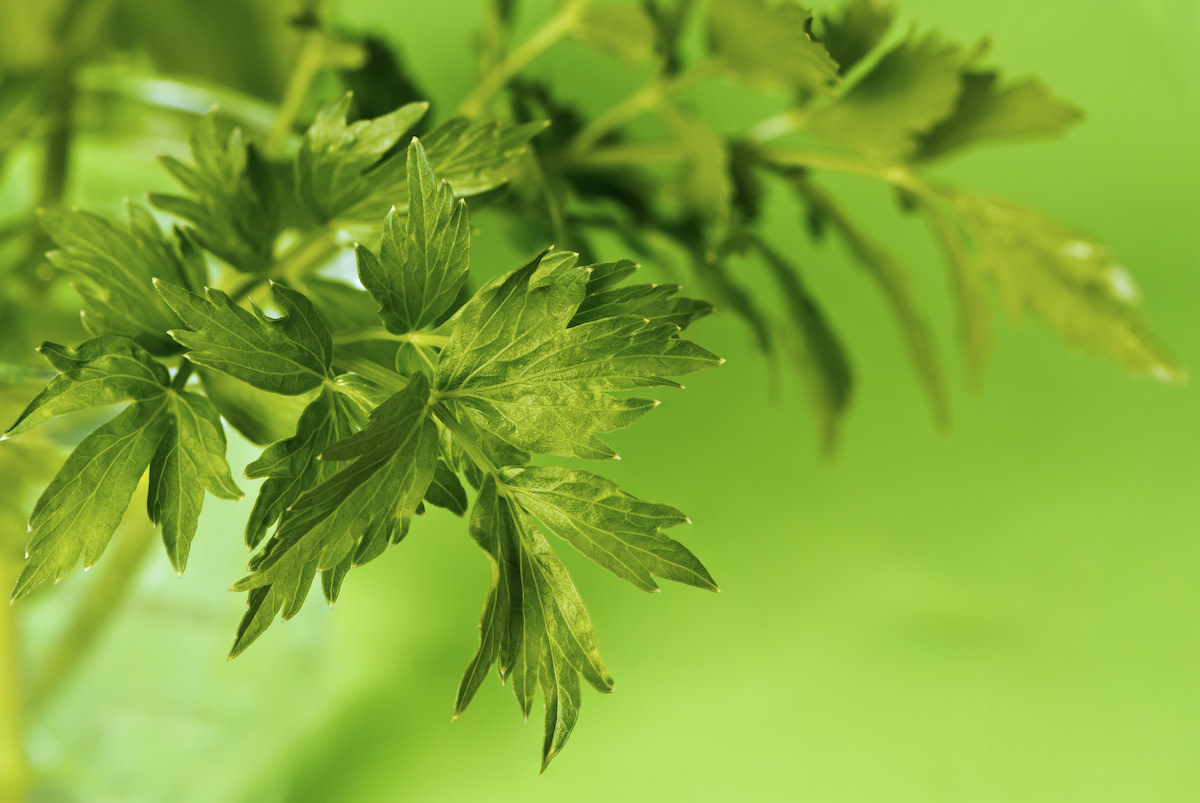How to Grow Lovage in Your Herb Garden
Written by MasterClass
Last updated: Nov 5, 2021 • 3 min read
Learn about lovage, a lesser-known leafy green herb.
Learn From the Best
What Is Lovage?
Lovage (Levisticum officinale), also known as the maggi plant and smellage, is a green perennial herb from Southern Europe in the Mediterranean region. Its use dates back at least as far as Roman times in the Ligurian region of Italy. Lovage gradually spread to other parts of the continent—and, eventually, to the Americas—due to its culinary and medicinal herb value.
What Does Lovage Taste Like?
Lovage is similar in appearance to parsley and celery, which also belong to the Apiaceae family. All parts of the plant are edible, with subtle flavor variations between each. The leaves have a celery flavor but a potent, sweet edge and a hint of citrus that’s comparable to parsley. Lovage stalks taste faintly of anise or fennel.
2 Ways to Grow Lovage
It’s easy to grow this perennial plant in moderate climates. You can grow lovage from seed or propagate by root division:
- 1. Sow the seeds in your herb garden. If starting from seed, direct-sow onto the prepared soil of your garden in the spring, once the soil temperature has reached sixty degrees Fahrenheit. Sprinkle sand over the area where the seeds have dropped. You can also germinate the seeds indoors and transplant the seedlings to the garden in late spring, after the last frost.
- 2. Propagate a lovage plant. If going the root division route, you’ll first need a fully-grown lovage plant. Since lovage has deep, robust roots, dig a hole that’s about a foot deep and as wide as the crown of the mature plant. Once the whole plant has been dug up, separate about half the roots from the original root ball. Transplant the roots into a section of prepared soil in your garden.
3 Tips for Growing Lovage
Mature lovage plants can reach six feet in height, with a thirty-two-inch spread. Follow these tips to grow healthy lovage plants:
- 1. Plant lovage in an area that gets full sun. Be sure to plant lovage in a place where it will get a good deal of light. Partial sun will work in warmer climates, but full sun is ideal.
- 2. Keep the soil moist. Lovage grows best in sandy, loamy, well-draining soil, with a pH of about 6.5. Water as often as needed to keep the soil moist but not soggy; this could be every day, every other day, or longer if you live in a humid climate. The plants will reach maturity around three years after planting.
- 3. Prune your lovage plant. Pruning once in the middle of the growing season will help your lovage thrive. Lovage produces yellow flowers, which eventually turn brown, a sign the plant has set seed. The seeds are edible and can harvest them by removing the entire plant heads and drying them in a paper bag.
Culinary Uses for Lovage
Lovage is a highly versatile herb. Consider the following ways to use the leaves, stalks, and seeds in your cooking:
- Lovage leaves: In the kitchen, you can add lovage leaves to many of the same dishes that call for parsley: grilled or roasted meats, casseroles, rich stews, hearty or light soups.
- Lovage stalks: You can use the lovage stalks like celery—add chopped stalks into egg salad or chicken salad, to a chicken stock, or preserve them whole by pickling.
- Lovage seeds: The seeds, known as celery seeds, are the most potent part of the plant. Use them like fennel seeds or to flavor liqueurs. You can also crush them and add them to spice mixes.
You can preserve lovage like other herbs: dry in a dehydrator or freeze to extend the shelf life. The dried leaves won’t be as vivid as the fresh but can add flavor to various meals.
Medicinal Uses for Lovage
Essential oils from lovage seeds are often added to other herbal remedy preparations and supplements. Lovage is a diuretic that is used as a carminative and to treat jaundice, sore throats, and kidney stones. As a tincture or salve, it is used to treat conditions like acne or psoriasis. However, its efficacy and side-effects are unknown, and it has been reported to be unsafe for children, pregnant people, and people who are breastfeeding. Consult your physician before consuming lovage.
Learn More
Grow your own garden with Ron Finley, the self-described "Gangster Gardener." Get the MasterClass Annual Membership and learn how to cultivate fresh herbs and vegetables, keep your house plants alive, and use compost to make your community—and the world—a better place.
